Studio Central and Eastern Europe
In our podcast series, produced by the Forum on Central and Eastern Europe at KU Leuven, we explore the latest academic research on the region. Through 20-minute conversations, researchers share their personal experiences from fieldwork, along with their latest findings and ideas. Tune in to hear captivating stories about politics, history, anthropology, sociology, literature, music, visual arts, and architecture.
Episodes

Tuesday May 20, 2025
Tuesday May 20, 2025
Uniting Europe or dividing it? A celebration of LGBTQ+ identity or a stage for homophobia? A voice for peace or a platform for political contestations? In the wake of the latest Eurovision edition, KU Leuven academics Maryna Shevtsova (political science) and Jonas Vanderschueren (cultural studies) reflect on the deepening cracks in Eurovision’s identity. They discuss how the song contest came dangerously close to imploding this year—and how its political values remain strikingly inconsistent and unresolved.
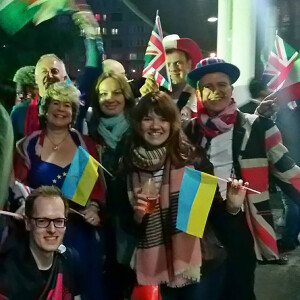
Friday May 09, 2025
Friday May 09, 2025
Each May, the dazzling and often divisive Eurovision song contest stirs up a whirlwind of fans, deep emotions, and fierce debates. Ahead of this year’s edition, political scientists Maryna Shevtsova and Peter Vermeersch delve into the social and political undercurrents of Eurovision — and its future.
A lifelong fan with a sharp analytical lens, Maryna reflects on how Eurovision became important to her personally and why it resonates powerfully in Ukraine today, especially in light of the Russian invasion. In a conversation with political scientist Peter Vermeersch, she unpacks the passions the contest evokes, the challenges its fans face, and its rising significance for the LGBTQ+ community and soft diplomacy.
Don’t miss this compelling conversation — and subscribe to our podcast series from the Forum on Central and Eastern Europe at KU Leuven!
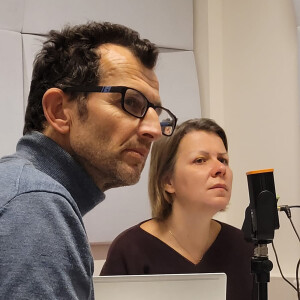
Friday Apr 25, 2025
Friday Apr 25, 2025
In this episode of Studio Central and Eastern Europe, we dive into the powerful intersection of literature, myth, and minority narratives in postwar Poland. Our guest is Prof. Emilia Kledzik, a literary scholar from Adam Mickiewicz University in Poznań, whose groundbreaking book The Poet’s Perspective: Jerzy Ficowski’s Romani Studies explores the roots of Romani representation in Polish literature and policy.
In conversation with Prof. Kris van Heuckelom (KU Leuven), Kledzik revisits the life and legacy of Papusza—Europe’s most renowned Romani poet—and the role played by Ficowski, her mentor and interpreter, in shaping the discourse around Romani identity. Together, they unpack how Ficowski’s work both illuminated and, at times, mythologized Roma culture, offering insight into how literature became a battleground for cultural memory and state ideology.
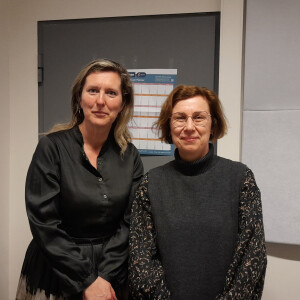
Tuesday Mar 18, 2025
Tuesday Mar 18, 2025
In this episode, Ria Laenen discusses her recently published and already widely acclaimed book on the history of global politics since World War II, Een heel klein beetje vrede (A Tiny Bit of Peace). She answers questions from Lien Verpoest, professor of the history of international relations at KU Leuven, about whether we are witnessing a major historical shift and when the post-World War II world order began to unravel.
Ria Laenen, a senior lecturer in East European, Eurasian, and international politics at KU Leuven, argues that while Europe spent decades underestimating Russia’s authoritarian leader, Vladimir Putin, it now appears to be overestimating his power. Offering a rare non-Eurocentric perspective on current affairs, she is a vital voice in today’s geopolitical discourse.
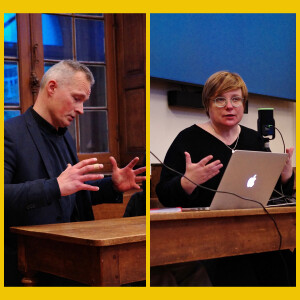
Tuesday Feb 25, 2025
Tuesday Feb 25, 2025
This podcast is an edited recording of the conversation, in which we explored the resurgence of Soviet-era citizen denunciations in Vladimir Putin’s Russia, a practice once central to Stalinist repression. Russian anthropologist Alexandra Arkhipova, who both studied and experienced this phenomenon, shared how she was reported to authorities seven times by a stranger and how it took her two years to uncover the person behind the reports. Forced into exile, she discussed the mechanisms driving individuals to collaborate with authoritarian regimes.
Hosted by historian Albena Shkodrova, the discussion also examined how the resurgence of denunciations in Russia echoes their role in the communist regimes of the Soviet Union and Eastern Europe.
Historian Nico Wouters provided further historical context, drawing parallels between today’s Russia and mid-20th-century Europe. He noted that in the years leading up to and during the Second World War, many European societies lost faith in democracy’s ability to address their problems, turning instead to autocratic rule. This erosion of democratic confidence, he warned, was a deeply troubling parallel to the present, though he also emphasized Europe’s greater resilience today due to its strong democratic and human rights institutions.
Dr. Arkhipova, now a Visiting Professor at the École Normale Supérieure in Paris, has researched political folklore, rumors, and Russian societal narratives. She also runs a widely followed blog analyzing social and political events in Russia. After being designated a “foreign agent” by Russian authorities following the invasion of Ukraine, she was stripped of her ability to work in Russia and forced into exile.
Nico Wouters is a Belgian historian. He is the head of the Centre for War and Contemporary Society at the Belgian State Archives and has authored a monograph on the collaboration of mayors and other public servants in Belgium, France, and the Netherlands with the Nazi occupiers during the Second World War.
The podcast was recorded during the discussion organized by the Forum on Central and Eastern Europe of KU Leuven on 11 February 2025.
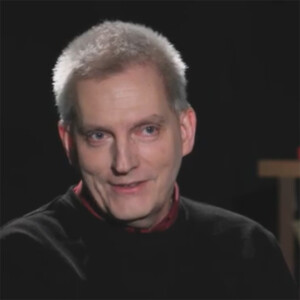
Friday Jan 31, 2025
Friday Jan 31, 2025
- In this episode of Studio Central and Eastern Europe, Oliver Reisner, a professor of Caucasian studies at Ilia University in Tbilisi, discusses the historical process of national identity construction in Georgia and the challenges Georgians face in reckoning with the memory of Stalin and their communist past.In his interview with historian Albena Shkodrova, Reisner offers a unique perspective as both a German academic teaching in Tbilisi and a former diplomat who managed a human rights program for World Vision Georgia. He shares his fascinating journey, reflecting on his experiences in the country—one he first fell in love with as a young student.Prof. Reisner participates in the project [HER-UKR](https://www.kuleuven.be/her-ukr): Challenges and opportunities for EU heritage diplomacy in Ukraine, led by KU Leuven and co-funded by the EU.
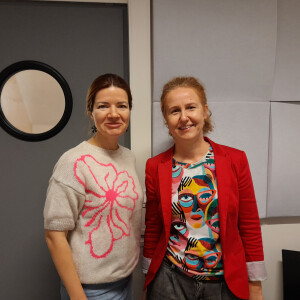
Tuesday Jan 14, 2025
Tuesday Jan 14, 2025
Join us for a compelling conversation with Dr. Elżbieta Olzacka, Assistant Professor at the Jagiellonian University in Krakow, as she sheds light on the emotional and challenging experiences of museum workers striving to safeguard Ukraine’s cultural heritage amidst the ravages of war.
In this episode of Studio Central and Eastern Europe, Dr. Olzacka speaks with Dr. Maryna Shevtsova of KU Leuven of how these efforts resonate beyond Ukraine, offering lessons Europe can learn from. This conversation explores the resilience of cultural mobilization in the face of conflict and the broader implications for cultural policy across Europe.
Dr. Olzacka participates in the project HER-UKR: Challenges and opportunities for EU heritage diplomacy in Ukraine, led by KU Leuven and co-funded by the EU.
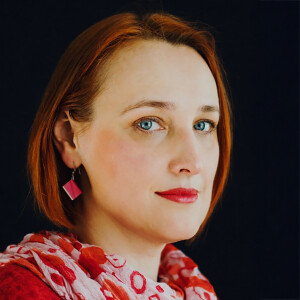
Thursday Dec 05, 2024
Thursday Dec 05, 2024
Were witches in medieval Ukraine prosecuted in the same way as in Western Europe? How did Russian imperial interests shape Kyiv’s international image between the late eighteenth and the early twentieth century, and did Western travelers accept or challenge these portrayals of the city?
In this episode of Studio Central Europe, Kateryna Dysa, a historian and associate professor in the History Department of the National University of "Kyiv-Mohyla Academy," discusses her research with Jonas Vanderschueren, host and postdoctoral researcher in Cultural Studies at KU Leuven.
Dr. Dysa participates in the project HER-UKR: Challenges and opportunities for EU heritage diplomacy in Ukraine, led by KU Leuven and co-funded by the EU. She holds a PhD and has been a visiting fellow at Harvard, Stanford, Paris, and Oxford, as well as a visiting professor at the University of Basel. She is the author of Ukrainian Witchcraft Trials: Volhynia, Podolia, and Ruthenia, 17th and 18th Centuries (Budapest, New York, 2020) and has written extensively on the history of witchcraft, sexuality, and medicine in early modern Ukraine. Her current research focuses on the construction of Kyiv’s image in travel literature from the late eighteenth through the early twentieth century.
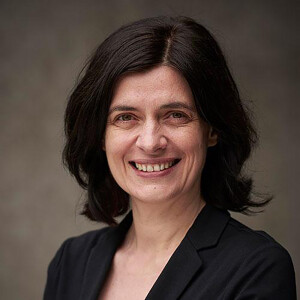
Friday Nov 29, 2024
Friday Nov 29, 2024
In this podcast, Albena Shkodrova, a historian at KU Leuven, speaks with Ketevan Gurchiani, a Georgian anthropologist from Ilia University in Tbilisi, about the concept of the city as an urban assemblage. Gurchiani shares her research insights into how the Soviet-era legacy of "camouflaging" and "doing as if" shapes contemporary religious practices in Georgia, fostering a perception of religious rules as flexible.She also explores the complex entanglements between urban infrastructure, nature, and belief systems. Referring to the devastating 2015 flooding of the Vere River, Gurchiani recounts how the disaster raised ecological concerns alongside theological interpretations. Some viewed the flood as divine punishment for religious disrespect, citing the Soviet-era practice of channeling the river through pipes made from melted church bells.Gurchiani discusses the concept of material porosity, where material objects absorb and retain ideas, which can later resurface with transformative force.
Ketevan Gurchiani participates in the project HER-UKR: Challenges and opportunities for EU heritage diplomacy in Ukraine, led by KU Leuven and co-funded by the EU.
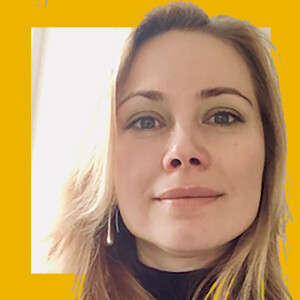
Friday Nov 22, 2024
Friday Nov 22, 2024
In this episode, host Maryna Shevtsova, senior FWO researcher at KU Leuven, sits down with Alexandra Yatsyk, a researcher at the University of Lille, to explore the complex intersections of history, identity, and politics in Estonia’s public spaces.Since the start of Russia's war in Ukraine in 2022, Soviet-era monuments in Estonia have come under renewed scrutiny, sparking heated debates and media interest in both Estonian and Russian-speaking communities. Alexandra Yatsyk delves into the concept of mnemonic security—how collective memory and symbols like monuments are used to preserve identity and social cohesion in times of uncertainty.The discussion unpacks the delicate balance Estonia faces as it relocates these controversial monuments. For Estonians, they represent Soviet oppression, while for the Russian-speaking minority, they are markers of acknowledgment. The episode examines whether these actions will bridge divides or deepen alienation, how shared understanding can be fostered, and the role of media in shaping these narratives.This episode offers fresh insights into memory politics, societal cohesion, and the transformative power of public spaces.
Alexandra Yatsyk participates in the project HER-UKR: Challenges and opportunities for EU heritage diplomacy in Ukraine, led by KU Leuven and co-funded by the EU.

The FCEE provides a multidisciplinary platform for dialogue and exploration of research on the politics, histories, societies, cultures, and institutions of 'Central and Eastern Europe' in the broadest sense. It is an initiative of the Faculties of Arts and Social Sciences of the KU Leuven. It brings together researchers from within and outside KU Leuven and initiates meaningful conversations on research-related topics.




